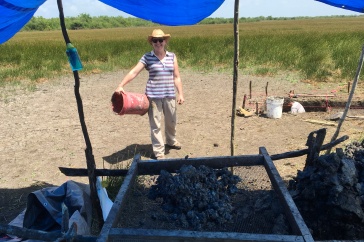
When news broke that the Duggar family — known for their TLC show "19 Kids and Counting" as well as their conservative political activism — had been hiding a sex scandal within their own family, headlines blared about how the clan that claims to hold itself in high religious and conservative regard could make such claims while covering up the fact that one of their sons had acted inappropriately.
We talked with UNH's own David Finkelhor, renowned child victimization expert, director of the Crimes Against Children Research Center, co-director of the Family Research Laboratory and professor of sociology, to ask him to weigh in on the headline-grabbing case.
Why so much media attention for this particular case, when there are thousands like this all the time?
We're still in a phase where people are getting educated and having awareness about this kind of trauma. Cases are being disclosed in a way that they haven't been in the past. One reason for that is because these types of crimes and abuses are happening beyond where you would expect other crimes to occur. Lots of famous, prominent people are getting caught up in this as both offenders and as victims. When a crime involves priests, rabbis, television personalities and film stars, it becomes bigger news. I think the Duggar case got particular traction because it has political dimensions to it, as well. There were people who were angry with them for using their notoriety to promote a conservative family policy agenda; a lot of people were happy to see some hypocrisy here, to discredit them.
Whether we agree or disagree with how the Duggars handled it, it seems there's a lesson to be learned here, either way — correct?
This case brings to light something that many people are not aware of — that nearly one third of all sexual offenses against children brought to police attention are committed by another juvenile. That rate is even higher in victim surveys. That's because there's a considerable amount of sexual abuse that coincides with bullying and humiliation, and also that rate includes date-rape scenarios. How we deal with adolescent sex offenders is a very challenging policy area right now. As for the Duggars, it's probably fair to say that it was not handled in the way that law and best practices would suggest. There may have been mandatory reporting obligations that were not fulfilled ... state statutes differ on their mandatory reporting standards.
In your opinion how should we be handling juvenile sex offenders?
The juvenile justice system is intended as a rehabilitative process. When it works well, it is sensitive to the developmental needs of the offender as well as the victim. The research suggests that most adolescent offenders have a pretty good prognosis to not re-offend; an incident as a juvenile is not a sign that they are headed for a lifetime of sexual deviance. The recidivism rate among juveniles is relatively low — around 5 percent. The problem is that we live in a time of enormous alarm and anxiety about sex offenses, and there's been a big political effort to make sure that people don't get away with it. Recently, a lot of statutory changes have occurred to have made the criminal response to juvenile offenders much more punitive and draconian, such as the Adam Walsh Act of 2006, which required states to put juvenile sex offenders on sex offender registries — quite a few states have refused to comply. There could be a scenario where a teenager sends a naked picture of him or herself and ends up on a sexual offender registry. So anyone working with adolescent perpetrators, including therapists and family members, have some credible trepidation about involving the justice system. But at the same time, clinicians and advocates feel it is important for these offenders to get some kind of treatment, and that there is some kind of restitution.
-
Written By:
Compiled by Michelle Morrissey '97 | Communications and Public Affairs
















































